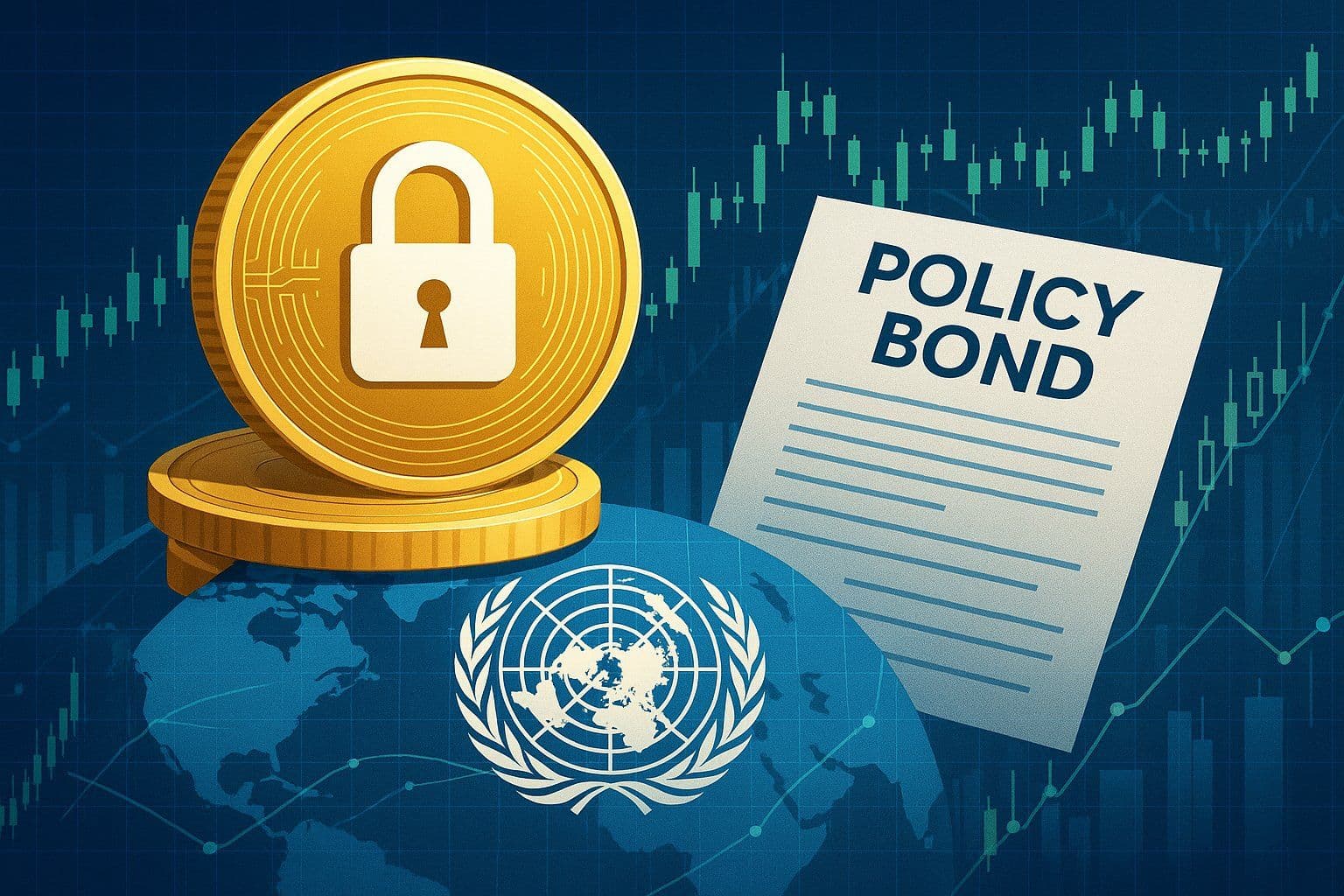In the world of global diplomacy, commitments are easy to make and hard to measure. Pledges on climate change, development, or human rights often dissolve into political vagueness once the spotlight fades. A growing number of technologists now believe blockchain could change that by making policy performance auditable in real time.
Their vision: governments issuing policy-linked digital bonds or “outcome tokens” that reflect progress toward national goals. These blockchain-based instruments would use verified data to track compliance with international agreements, bringing accountability to the same digital infrastructure that underpins financial markets.
From Green Bonds to Policy Tokens
The idea builds on the rise of green finance. Over the past decade, sovereign “green bonds” have tied investment to climate or sustainability outcomes. The next step, experts suggest, is to move those obligations on chain — where performance can be monitored, verified, and traded transparently.
In such a system, a country might issue a “Climate 2030” token, pegged to measurable targets like carbon reduction or renewable capacity. When the goal is met, smart contracts could trigger interest payments or bonuses. If it isn’t, the token’s value — and the issuer’s credibility — would fall automatically.
Supporters say this model could create a marketplace for trust, where investors and citizens can see whether policy promises are kept.
“It would turn diplomacy into data,” said one researcher at a European policy institute. “You wouldn’t need to trust the press release — you’d trust the blockchain record.”
Accountability as a Market Force
For governments, tokenizing policies could introduce a new kind of financial pressure. Investors might reward transparency and results, while punishing inaction. The approach could also attract climate-focused capital that increasingly demands proof of impact rather than rhetoric.
Applied to multilateral institutions, the model becomes even more striking. Observers have floated the idea of the United Nations or World Bank issuing tokenized commitments, where each pledge — from refugee resettlement to carbon offsets — can be verified through public data feeds.
“Imagine if the U.N. issued a token tied to global emissions goals,” said a sustainability analyst in Singapore. “If the targets were hit, the token would appreciate. If not, it would lose value. Accountability would have a price.”
Political and Ethical Risks
Turning diplomacy into a financial market is not without risk. Once national goals become tradable assets, speculation is inevitable. Traders could short education reforms or profit from political instability. Critics warn this could distort policy priorities, rewarding what’s measurable rather than what’s meaningful.
Economists also caution that algorithmic verification — even through smart contracts — may oversimplify complex social outcomes. Measuring climate progress or social equality cannot be reduced to a few data points without losing nuance.
“Policy is not a stock ticker,” one former central banker noted. “Once you start pricing it like one, governance risks becoming performance theatre.”
Early Experiments and Emerging Interest
Elements of this vision are already emerging. The World Bank’s bond-i project, launched in 2018, pioneered blockchain-based sovereign bonds. The Bank for International Settlements has explored tokenized debt issuance for central banks. Meanwhile, governments including Singapore and the UAE have tested distributed-ledger systems for monitoring environmental and infrastructure projects.
Private initiatives are also pushing the concept. Some startups are developing “impact tokens” that measure verified climate or humanitarian outcomes, attracting both philanthropic and speculative investors. The difference is scale: sovereign-level tokenization could shift how diplomacy and development are financed.
The Future of Transparent Governance
As trust in global institutions erodes, blockchain may offer something traditional diplomacy can’t: proof. Tokenized policy instruments could embed accountability into the machinery of governance, creating a permanent, public record of progress or failure.
For now, the idea remains speculative. But as the boundary between finance and policy continues to blur, the question is no longer whether such systems are possible — it’s how soon nations will decide that credibility itself should trade on chain.

